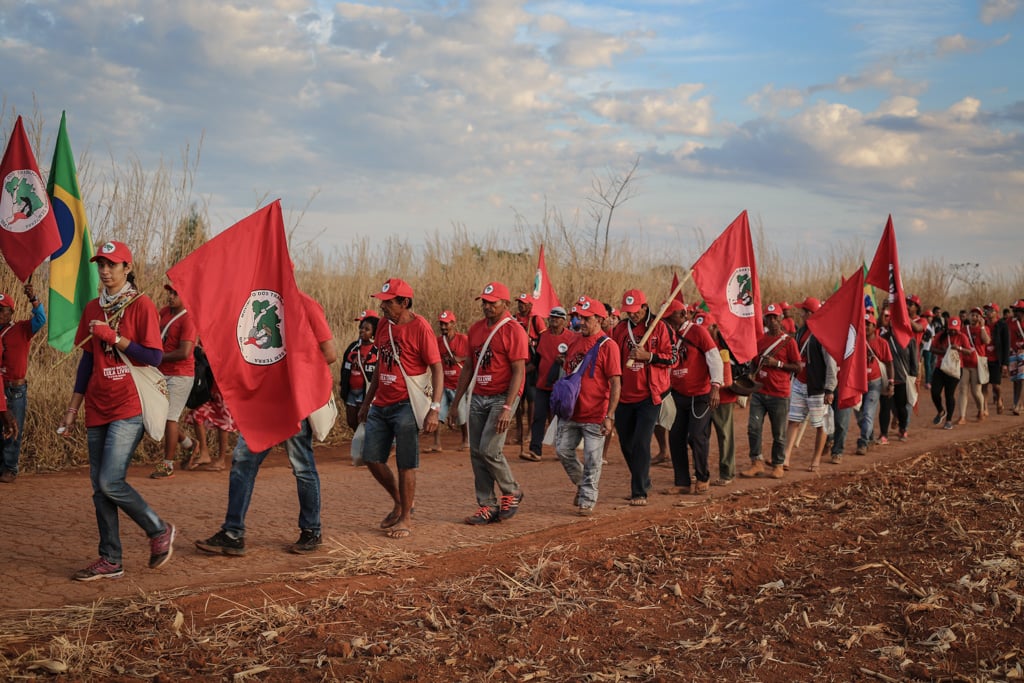Worried with the inertia of Lula’s government and the government of Bahia’s Jerônimo Rodrigues (PT) in containing the invasions of rural properties, farmers from Bahia are organizing themselves, with the support of city halls and class entities, to face the “Red April”.
During this month, the Landless Rural Workers Movement (MST) usually invades properties to pressure agrarian reform.
In February, Suzano, a multinational cellulose company, had three areas invaded in Bahia.

According to Incra (National Institute for Colonization and Agrarian Reform), this year, there were 16 land invasions in the country, 10 of which were in Bahia, but since communication is not mandatory, the number may be higher.
One of the organizers of the resistance movement is farmer Luis Uaquim, who produces cocoa and raises cattle in Ilhéus.
Interviewed by CNN Brazil, he said that “the movement is a reaction to the Lula government”.
“The change of government at the federal level brought back a policy – supported by the PT – of land invasions,” declared the farmer.
“This ends up being worse in Bahia because the PT has governed the state for 16 years, so the MST finds fertile soil to invade here,” he added.
According to him, farmers will be vigilant to prevent the MST from entering properties in Bahia.
“April 1 is key. The MST calls it Red April because they like to launch invasions. We will keep vigil. In the last government, they [MST] stopped because the government wouldn’t let them.”
“So, we are organizing ourselves, and this movement is gaining body and dimension never seen before. It’s a bomb ready to explode because there may be conflict when it’s time to remove the invaders,” said Uaquim.
In Jair Bolsonaro’s administration, according to Incra, there were 24 invasions of rural properties. In Lula’s two governments, more than 2,000.
According to Uaquim’s statement to CNN, the ruralists will not engage in armed confrontation.
“The group is very clear. There can be no guns. We are betting on pressure. If they enter the farm with a hundred people, we push the group’s button and go there with a thousand people.”
According to the station, over 800 farmers from 130 Bahia’s 417 municipalities are already in the group.
The nuclei are in the cities of Itabuna, Jiquiriçá, Ipiaú, and Itapetinga (center-south of the state), Eunápolis (south), and Santo Antonio de Jesus (Metropolitan Region of Salvador).
The resistance movement against land invasions began in the city of Santa Luzia (in the Itabuna region), where a small group of farmers managed to prevent the landless from invading.
Since then, the movement has grown, and associations and rural unions have served as a meeting base.
For example, the rural union of Gandu has scheduled a meeting for March 29 to discuss land invasions.
Some municipalities are also allying themselves with the farmers.
The mayor of Andaraí, president of the Chapada Forte Consortium, made up of 20 municipalities in south-central Bahia, released a note on Tuesday 21, stating that the consortium “vehemently disagrees with any act of invasion or occupation” of properties.
“The Chapada Forte Consortium publicly declares that it is in favor of Agrarian Reform under the Law but understands that expropriation is the correct path, and, for this reason, strongly disagrees with any act of invasion or occupation because it is an action that violates the constitutional guarantee, the property right, and generates legal insecurity,” the note states.
For this reason, it considers it “essential that immediate answers are given to demobilize invasions or occupations” and, in a calming tone, says that “we recognize that the state and federal government have made efforts to seek solutions through harmonious dialogue with leaders of all productive classes and movements.
The Lula government does not condemn the invasions.
The Minister of Agrarian Development, Paulo Teixeira, defends dialogue with the MST and celerity in agrarian reform.
With information from Revista Oeste

